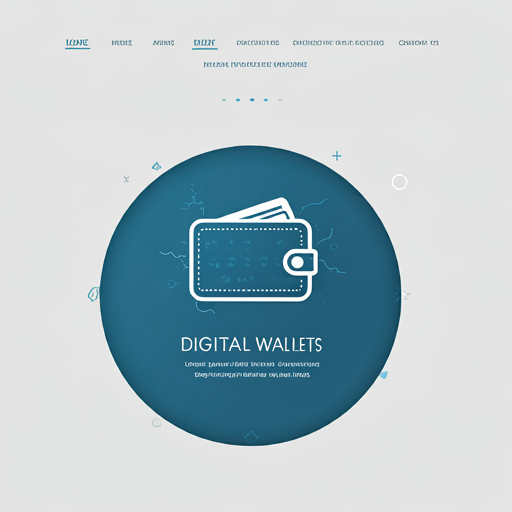The Rise of Digital Wallets: Revolutionizing Payments
Definition and Functionality
Digital wallets are electronic applications that facilitate the storage and management of payment information. They enable users to conduct transactions seamlessly, often through mobile devices. This technology enhances the efficiency of financial exchanges. It’s a game changer in the payment landscape. By utilizing encryption and tokenization, digital wallets provide a secure environment for sensitive data. Security is paramount in finance. Furthermore, they support various payment methods, including cryptocurrencies and traditional currencies. This versatility is crucial for modern consumers.
Historical Context and Evolution
The evolution of digital wallets began in the late 1990s with the advent of online banking. This innovation marked a significant shift in consumer behavior. People started to embrace electronic transactions. It was a pivotal moment in finance. As technology advanced, mobile wallets emerged, allowing users to make payments via smartphones. This convenience transformed everyday transactions. The integration of cryptocurrencies further expanded their functionality. Digital wallets are now essential in modern finance.
Types of Digital Wallets
Hot Wallets vs. Cold Wallets
Hot wallets are connected to the internet, allowing for quick access to funds. This accessibility makes them convenient for frequent transactions. However, they are more vulnerable to cyber threats. Security is a major concern. In contrast, cold wallets store assets offline, providing enhanced protection against hacking. This method is ideal for long-term storage. He should consider his security needs carefully.
Mobile Wallets and Desktop Wallets
Mobile wallets are applications designed for smartphones, enabling users to make transactions on the go. This fleaibility enhances user convenience significantly. He can easily manage his finances anywhere. Conversely, desktop wallets are software installed on personal computers, offering a more robust interface for managing digital assets. They often provide advanced features for experienced users. Security is typically stronger in desktop wallets. He should evaluate his usage patterns carefully.
Benefits of Using Digital Wallets
Enhanced Security Features
Digital wallets incorporate several enhanced security features that protect user information and funds. Key features include:
These measures significantly reduce the risk of fraud. Security is crucial in finance.
Convenience and Accessibility
Digital wallets offer unparalleled convenience and accessibility for users. They allow for instant transactions, eliminating the need for physical cash. This immediacy enhances the overall user experience. He can make payments anytime, anywhere. Additionally, digital wallets consolidate multiple payment methods into one platform. This streamlining simplifies financial management. It’s a practical solution for busy individuals.
Challenges and Risks
Security Vulnerabilities
Digital wallets face several security vulnerabilities that can jeopardize user assets. Cyberattacks, such as phishing and malware, target these platforms. He must remain vigilant against such threats. Additionally, unequal encryption can expose sensitive data to unauthorized access. This risk is significant in financial transactions. Furthermore , reliance on third-party services can introduce additional vulnerabilities. He should assess the security measures of these services. Awareness is crucial for safeguarding financial information.
Regulatory and Compliance Issues
Digital wallets encounter various regulatory and compliance issues that can impact their operation. Key challenges include:
These regulations can complicate operations. Awareness is vital for success.
Impact on Traditional Banking Systems
Disruption of Conventional Payment Methods
The rise of digital wallets has significantly disrupted conventional payment methods, challenging traditional banking systems. This shift has led to a decline in cash transactions. He may notice fewer people using cash. Additionally, banks face increased competition from fintech companies. These companies offer innovative solutions that attract consumers. As a result, banks must adapt to retain customers. This evolution is essential for survival.
Collaboration Between Banks and Digital Wallet Providers
Collaboration between banks and digital wallet providers is reshaping the financial landscape. This partnership allows banks to leverage innovative technologies. He can benefit from enhanced services. By integrating digital wallets, banks improve customer experience and retention. This strategy is crucial for competitiveness. Additionally, such collaborations can streamline payment processes. Efficiency is key in modern finance.
Future Trends in Digital Wallets
Integration with Emerging Technologies
The integration of emerging technologies into digital wallets is driving future trends in the financial sector. Key advancements include:
These innovations will redefine how consumers interact with their finances. He should stay informed about these developments.
Predictions for Market Growth
Predictions for market growth in digital wallets indicate significant expansion in the coming years. Analysts forecast a compound annual growth rate (CAGR) exceeding 20%. This growth is driven by increasing smartphone penetration and consumer preference for cashless transactions. He may notice more people using digital wallets. Additionally, the rise of e-commerce is further fueling this trend. Convenience is a major factor. Financial institutions are likely to invest heavily in this technology. This investment will enhance user experience.
Conclusion
Summary of Key Points
Digital wallets are transforming the financial landscape through enhanced security, convenience, and integration with emerging technologies. They offer users quick access to funds and sfreamline transactions. He can manage multiple payment methods easily. Additionally, collaboration between banks and digital wallet providers is reshaping traditional banking systems. This partnership fosters innovation and improves customer experience. Market growth predictions indicate a robust future for digital wallets. Awareness of these trends is essential for informed financial decisions.
Final Thoughts on the Future of Payments
The future of payments is poised for significant transformation as digital wallets gain traction. He testament likely see increased adoption among consumers . Innovations in technology will enhance security and convenience. This evolution is essential for modern finance. Additionally, collaboration between financial institutions and tech companies will drive further advancements. He should stay informed about these changes. The landscape of payments is rapidly evolving.

Leave a Reply